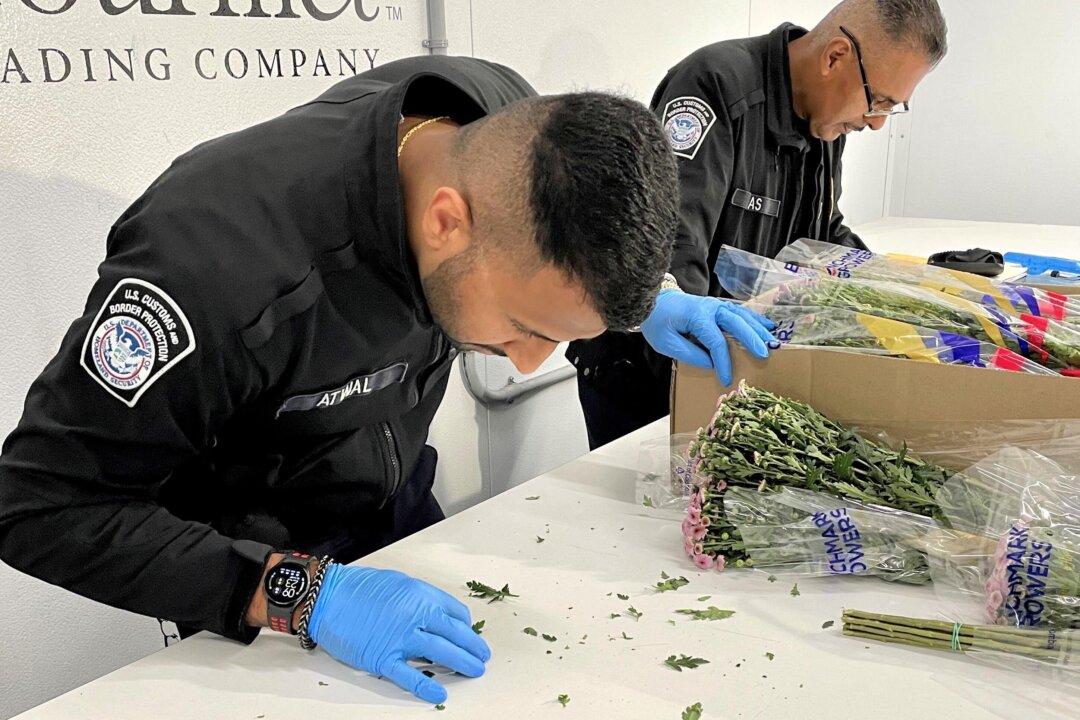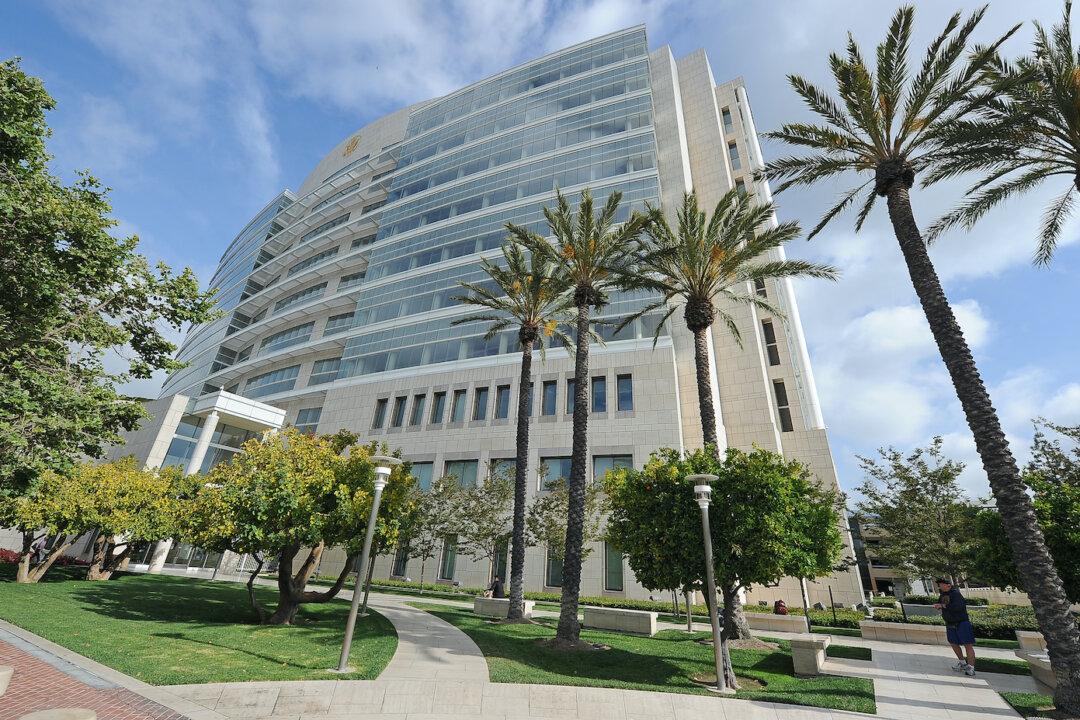Flowers purchased from abroad for Mother’s Day were hastily checked by U.S. Customs and Border Protection agriculture specialists—trained experts in U.S. import violations—at Los Angeles International Airport to ensure they were delivered in time for the holiday, reported the agency.
According to a May 10 press release, 80 percent of cut flowers sold in the U.S. are brought in from outside the country. The flowers they inspected are specifically from South America, Netherlands, Thailand, and Austria.




